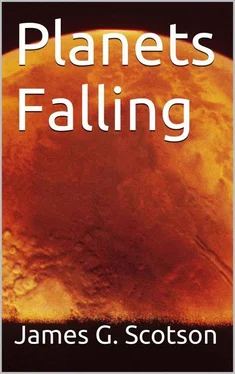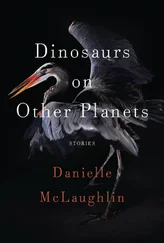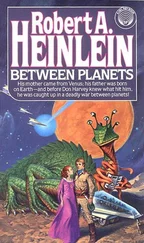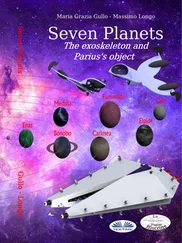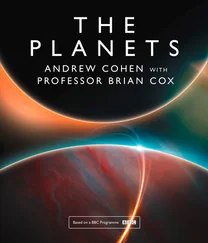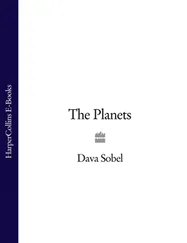Adam never accepted that his mother was capable of genocide. He didn’t have much time to dwell about it during those weeks following the loss of earth. His life was steeped in being a leader, ordering reconnaissance, trying to arrange relief to the billions of starving, thirsty people, and foremost, trying to determine a way to stop the progression of an aggressive, terrifying microbe about which he knew nothing.
Maggie, Jon, Sarah, and Adam had entered into an unspoken agreement to not implicate Pinchot in the event. After all, she would have to be tried by an objective panel before guilt could be assessed. She may have simply gone insane, was fabricating her story, and this was a bizarre coincidence. Of course, they knew this was untrue. But this false thought kept them from descending into their own form of madness. They had another reason to remain silent. Announcing to the remainder of humanity that their chosen leader’s mother was potentially responsible for the worst disaster in history would undermine Adam’s authority, fracture ties with the naurons, and cause chaos to reign completely.
Maggie and Sarah spent countless days sifting through Tash’s old research notes with no success. A solution had to exist somewhere. They searched diligently for any trace of information left by Holst. He either destroyed it or sent it earthside to his mysterious contact. If Pinchot knew anything, she wasn’t going to tell them. They were spinning on a carousel that would not stop. If Maggie closed her eyes, she saw the brightly colored animals around her — horses that she never had a chance to touch or ride on earth. As the world spun around her in wild streaks, she knew that mars was the home of the space-faring human race now. Humanity was about to diverge into two species.
Two months of zero contact with earth had shaken Adam. He sat in his office looking across the horizon at Jupiter brightly rising. In contrast, earth was barely visible — a dim blue star high in the sky. His forces tried dropping food and supplies on earth from orbit. But how do you rescue billions of people from space with a few care packages?
Reports from the various satellites and recon flights were discouraging. Entire cities had been engulfed in flames and were now dark cinders. The surface of the planet, once brightly lit at night, was pitch — dark as velvet. Surprisingly few people were visible on the surface. He did not know whether they had killed each other or had moved underground. He doubted that survival would be high. So few people knew how to raise food or fish. Few animals remained to hunt. Even clean, fresh water depended on technology, as it was now, or rather was, collected by massive atmospheric condensers. The strong and selfish probably hoarded any remaining reserves and left their subordinates to starve. One horrific report from low orbit suggested that cannibalism was occurring in some regions. The blue gem suspended in the heavens was stained in crimson blood.
“Adam, what are you planning to do?” Maggie walked in and sat on the edge of his desk. She stared at the sky as well.
He sat silently for a long time. “We move on. We continue our research. We do not allow worlds to become overpopulated and overused. We fill space with thousands of habitable worlds.”
Chapter 13 – Probes Have Feelings Too
Adam’s eyes had long closed and returned to the cosmic dust. Centuries passed. And the reach of life stretched through the galactic haze. Philosophers and scientists realized that the promising planets were seldom exciting. They didn’t shine like jewels in their orbits, begging for a second look. Not one boasted high gravity or tempestuous storms or magma fountains spouting grandly into the sky. Gas giants were too boisterous. The tiny chunks of rock spinning wildly around their white-hot stars were too risky. Rather, the planets that won the attention and acclaim from those living and pondering (and still searching for profit) in the galaxy were monochromatic lumps of dirt and water, taking no risks as they revolved around their yawning, yellow stars. The mundane, overlooked things held the most potential in the universe.
In an unobtrusive patch of space a narrow beam of radiation carried an urgent message across a vast distance. The creator of this little arc of information was a tiny probe not much larger than a hummingbird — nothing exciting to look at — a drab ping pong ball in space. But it had a bold announcement to make. In tiny letters on its side were the words Data Logging Orbital Satellite 7C, circa 7150, Terra Institute . This mechanical culmination of centuries of science and technology from four intelligent species, was ticking through its standard systems checks as it completed its umpteenth orbit around Planet C9. It was created to think a little, enough to decide when to adjust its right acension and declination in orbit and to make minor repairs to its primary systems when hit by a stray cosmic ray or a chunk of debris. With this wisp of intelligence, it faintly recognized the import of its discovery.
The northern regions of the craggy, foggy ball of dirt and rock rotating beneath its belly were starting to stir.
The activity in the northern hemisphere would have measured as no more than a minor electrical glitch in the atmosphere of most planets, but for Planet C9, it was extraordinary. Sparks and flashes jumped playfully where they certainly shouldn’t be. As the faint light show reflected on the probe’s ceramic sensors, the satellite’s circuits jumped to life and started streaming data homeward, if such a place really existed.
Transmissions telling the probe what to do originated from that hallowed place in deep space, so something must be out there, guiding it, caring about it. If a machine could be described as excited about sending a message — a mechanical prayer perhaps — to its apparent maker, so it was.
Chapter 14 – The Platform
Goodness was Verat Wilcoxin tired. He was on the downward slide of a second shift in the remote sensing deck of the space station. Everyone called the station the Platform. To Verat, it was his hell in space. Just a few more double or perhaps triple shifts and he would earn the time to rotate off the Platform for a few months. Maybe he would head home for a bit. There was the mandatory psych evaluation and additional training at the Institute, of course. No getting around that. But he would do his best to slack through those exercises and spend time enjoying real gravity in real sunshine. Verat was a direct descendent of one of the Founding Families — linked to Pinchot Ferris in fact. This distinction allowed him liberties that others from less fortunate bloodlines could not enjoy.
Verat was cruising through his mid thirties and wondering when the excitement — the reason for life — might hit him in the face. He was drifting in this deep space assignment. It was better than being near his family. His childhood was spent in misery… living, rather existing, in a cold, emotionless void. Parents dead. Uncle and aunt constantly reminding him of his worthless existence. His parents left him with debt and a pedigree, but little else. All in the past he reassured himself. No need to dwell on the disappointments of life. A little alcohol and lots of strong tea were the waves that washed him away from the shores of despair.
His fists firmly massaged his eyeballs when a small blue light began pulsing on the master console in remote sensing. An alert technician wouldn’t miss this obvious announcement. However, Verat was heading for the lift, prepared to call it the end of a long day when a voice made him jump.
“Dr. Wilcoxin. The probe array has detected an anomaly. How shall we proceed?”
Читать дальше
